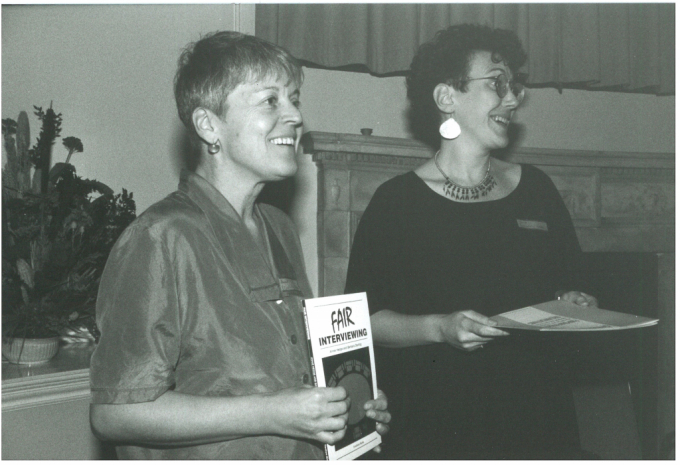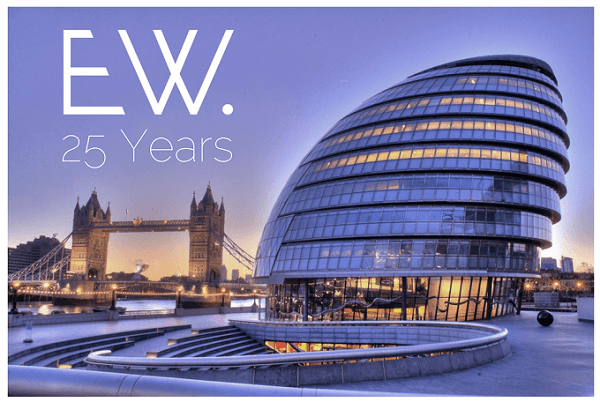
25 Years in Diversity and Inclusion – Reflections of a CEO

With our landmark Anniversary event at London’s City Hall fast approaching, I’ve been reflecting on the last 25 years of EW Group.
Back in 1992, Dr Annie Hedge and I set up a company focused on the business case for diversity and inclusion, as well as the social justice case. We didn’t see the two as mutually exclusive. And in the early 1990s, this really was unusual.

Equality, diversity and inclusion – how the landscape has changed
Most equality and diversity training courses were either solely about race or gender or disability. They focused purely on the law and on compliance. Most companies hadn’t got out of the starting blocks at all when it came to seeing the real business benefits of diversity and inclusion. I had to get used to some not-very-subtle eye-rolling at the very idea that senior people should seriously attend to building inclusive cultures at work. I took this as a challenge, and saw the business opportunity it represented.
It’s been an extraordinary 25 years. There have been huge advances in legislation in many countries. The same is true of policies and strategies in many companies. The Equality Act 2010 was helpful in pulling the concept of diversity and inclusion together, and helped people see the intersections between protected characteristics. Seven years on, it will be interesting to see where the legislation goes next.
The business case for diversity – the rise and rise
In time, too, businesses began to feel the pain of not getting it right. It meant losing staff, damage to brand and reputation, and so on. Over the last decade in particular, companies have reached a clearer understanding around the need to recruit diverse teams, to create new products and services by welcoming different ways of thinking, and to offer a much more enticing proposition for agile, flexible working. At the very top, too, inclusive leadership is fast becoming a new source of competitive advantage across the globe.
All this progress means that nowadays we’re able to work at such deep levels with clients. We co-produce and co-design products and services that fit their own cultures and aspirations, and deliver bottom-line benefits. Our clients are already proactively looking for next-level ideas and services on inclusive working, rather than just ticking the box of compliance. The days of going through the motions are long gone.

It’s now rare that we hear the old favourites. “It’s political correctness gone mad.” “It’s all gone too far.” “You can’t tell jokes anymore.” When we do hear these phrases, it’s usually from individuals or groups who haven’t been given the opportunity to refresh their thinking. And it’s soon rectified by us helping people get it right rather than being stuck in 1992 (or earlier).
The work we’ve done to help build the confidence and competence of managers to manage diverse teams well is there for all to see: improvements in retention, staff survey results, winning more bids, plus key people now spending precious management time on employee engagement rather than conflict resolution and legal costs.
Building inclusive cultures – the work still to be done
Of course, for all the great progress, the recent Harvey Weinstein scandal and the growing furore around sexual harassment in the corridors of Westminster remind us how far we have still to go. We have to work to create a culture where people know the standards expected of them, and feel empowered to speak out when things aren’t right because they know they will be heard.
Fortunately, so many business leaders really do understand that they simply can’t be excellent without building organisations that have diversity and inclusion woven into their DNA. And that’s a sentence I couldn’t have written 25 years ago.
